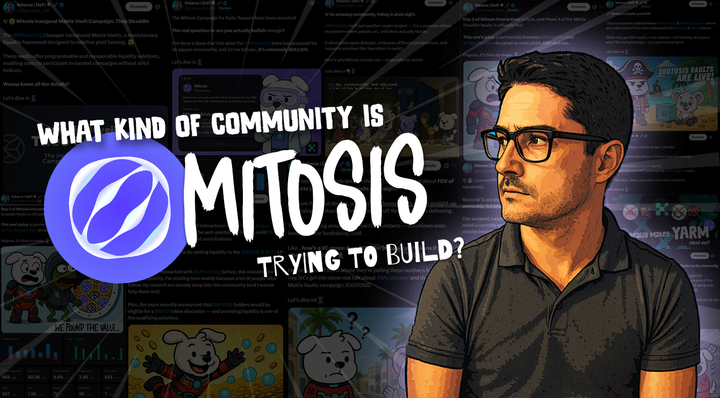A Comprehensive Guide For Beginners On How To Navigate Web3 jobs

The decentralized vision of the internet built on blockchain technology, is reshaping industries and creating a wealth of career opportunities. From finance to gaming, supply chain to digital art, Web3 is fostering a new economy where decentralization, transparency, and user ownership are paramount. For beginners looking to break into this dynamic field, the array of roles, technologies, and opportunities can feel overwhelming. This article provides a detailed and explanatory guide to Web3 jobs for beginners, covering what Web3 is, the types of roles available, required skills, how to get started, and tips for success. Quickly, let's take a walkthrough on what Web3 really means? Web3 refers to the next generation of the internet, where decentralized technologies like blockchain, smart contracts, and cryptocurrencies enable user-controlled, trustless systems. Web2 on the other hand is where centralized platforms (e.g Google, Amazon) dominate, Web3 empowers individuals to own their data, assets, and digital identities. This paradigm shift is driving demand for professionals who can build, maintain, and promote decentralized applications (dApps), protocols, and ecosystems. For beginners, Web3 offers a unique opportunity to enter a rapidly growing industry with roles that range from technical (e.g blockchain development) to non-technical (e.g community management). The decentralized nature of Web3 also means many jobs are remote, global, and accessible to self-taught individuals, making it an attractive field for career changers and newcomers. Types of Web3 Jobs for Beginners Web3 encompasses a diverse range of roles, many of which are beginner-friendly or require skills transferable from other industries. Below are the main categories of Web3 jobs suitable for newcomers, along with examples and responsibilities. 1. Technical Roles These roles involve building or maintaining Web3 infrastructure, dApps, or smart contracts. While some require coding knowledge, entry-level positions often welcome beginners with foundational skills. Technical Roles such as the following below. A. Blockchain Developer (Entry-Level) What They Do: Write and test smart contracts, develop dApps, or contribute to blockchain protocols. Example: Junior Solidity developer, creating simple smart contracts for Ethereum-based projects. Skills Needed: Basic knowledge of programming (e.g JavaScript, Python), familiarity with Solidity or Rust, and understanding of blockchain concepts. Tools/Platforms: Ethereum, Remix IDE, Hardhat, Truffle. B. Front-End/Back-End Developer for dApps What They Do: Build user interfaces (UI) or server-side logic for dApps, integrating with blockchain via APIs like Web3.js or Ethers.js. Example: Developing a front-end for an NFT marketplace using React. Skills Needed: HTML, CSS, JavaScript, React, or Node.js; basic understanding of blockchain APIs. Tools/Platforms: Web3.js, Ethers.js, Moralis, Infura. C. Quality Assurance (QA) Tester What They Do: Test dApps or smart contracts for bugs, security vulnerabilities, or usability issues. Example: Manual testing of a DeFi platform’s user interface. Skills Needed: Attention to detail, basic scripting (e.g Python), and familiarity with testing frameworks. Tools/Platforms: Selenium, Mocha, or manual testing environments. 2. Non-Technical Roles Non-technical roles are ideal for beginners without coding experience, focusing on community building, marketing, or operations in Web3 projects. A. Community Manager What They Do: Engage with a project’s community on platforms like Discord, Telegram, or X, answering questions, moderating discussions, and fostering engagement. Example: Managing a Discord server for a new NFT project. Skills Needed: Communication, social media management, and understanding of Web3 culture (e.g, memes, crypto lingo). Tools/Platforms: Discord, Telegram, X, Notion. B. Content Creator/Writer What They Do: Write blog posts, tutorials, or social media content to educate users about a Web3 project or blockchain technology
Example: Writing beginner-friendly guides for a DeFi protocol’s blog. Skills Needed: Writing, research, and basic knowledge of blockchain concepts. Tools/Platforms: Medium, Ghost, X. C. Marketing Specialist What They Do: Promote Web3 projects through campaigns, partnerships, or social media strategies, often targeting crypto-native audiences.
Example: Running X campaigns for a new token launch. Skills Needed: Marketing, SEO, social media analytics, and familiarity with crypto communities. Tools/Platforms: X, Google Analytics, Canva. D. Customer Support What They Do: Assist users with issues related to dApps, wallets, or tokens, often via Discord or email. Example: Helping users troubleshoot wallet connection issues for a dApp. Skills Needed: Problem-solving, communication, and basic crypto knowledge(e.g how wallets like MetaMask work). Tools/Platforms: Zendesk, Discord, MetaMask. 3. Creative Roles Web3’s intersection with NFTs and gaming has created demand for creative professionals. NFT Designer What They Do: Create digital art or collectibles for NFT projects, often collaborating with developers to integrate assets into smart contracts. Example: Designing profile picture (PFP) NFTs for a small collection. Skills Needed: Graphic design, familiarity with NFT standards (e.g ERC-721). Tools/Platforms: Adobe Photoshop, Illustrator, Procreate. Game Designer (Web3 Gaming) What They Do: Design gameplay mechanics or assets for blockchain-based games, such as play-to-earn (P2E) titles. Example: Creating basic game assets for a decentralized game. Skills Needed: Game design principles, familiarity with Unity or Unreal Engine, and blockchain integration basics. Tools/Platforms: Unity, Unreal Engine, IPFS. 4. Operations and Administrative Roles These roles support the operational side of Web3 projects, often in decentralized autonomous organizations (DAOs). DAO Contributor What They Do: Participate in governance, project management, or administrative tasks for a DAO, such as organizing votes or managing budgets. Example: Coordinating proposals for a DAO’s community treasury. Skills Needed: Organization, communication, and understanding of DAO tools. Tools/Platforms: Snapshot, Aragon, Discord. Project Coordinator What They Do: Manage tasks, timelines, or resources for Web3 projects, often coordinating remote, global teams. Example: Scheduling tasks for a dApp development team. Skills Needed: Project management, familiarity with tools like Trello or Notion, and basic Web3 knowledge. Tools/Platforms: Notion, Trello, Airtable. Skills Needed for Web3 Jobs While specific skills vary by role, beginners can start with these foundational areas: Technical Skills Blockchain Basics Understand key concepts like decentralization, consensus mechanisms (e.g Proof of Stake), and smart contracts. Programming: Learn languages like Solidity (for Ethereum smart contracts), Rust (for Solana), or JavaScript (for dApp front-ends). Web3 Tools: Familiarize yourself with tools like MetaMask, Remix IDE, Web3.js, or Hardhat. Version Control: Git and GitHub are essential for collaborative development. Non-Technical Skills Crypto Literacy: Learn crypto terms (e.g gas fees, wallets, tokens) and Web3 culture (e.g “HODL,” “WAGMI”). Communication: Strong written and verbal skills for community management, content creation, or support roles. Marketing/Social Media: Knowledge of X, Discord, and Telegram for engaging Web3 audiences. Problem-Solving: Critical for customer support, QA, or DAO coordination. Soft Skills Adaptability: Web3 evolves rapidly, so staying open to learning is crucial. Collaboration: Many Web3 projects are global and remote, requiring teamwork across time zones. Curiosity: A willingness to explore new tools, protocols, or communities. How to Get Started in Web3 Jobs Breaking into Web3 as a beginner requires a mix of learning, networking, and hands-on experience. Here’s a step-by-step guide: 1. Learn the Basics of Web3 and Blockchain. 2. Build Relevant Skills 3. Gain Practical Experience 4. Network in the Web3 Community 5. Apply for Jobs - Job Boards: Check Web3-specific platforms like: - CryptoJobs (cryptojobs.app) - Web3.career - UseTheBitcoin Jobs (usethebitcoin.com/jobs) - Gitcoin (for freelance bounties) - Freelance Opportunities: Look for gigs on Gitcoin or Upwork, such as writing or community management tasks. - Tailor Your Resume: Highlight relevant skills (e.g Solidity, Discord moderation) and include links to your portfolio or GitHub.


Comments ()